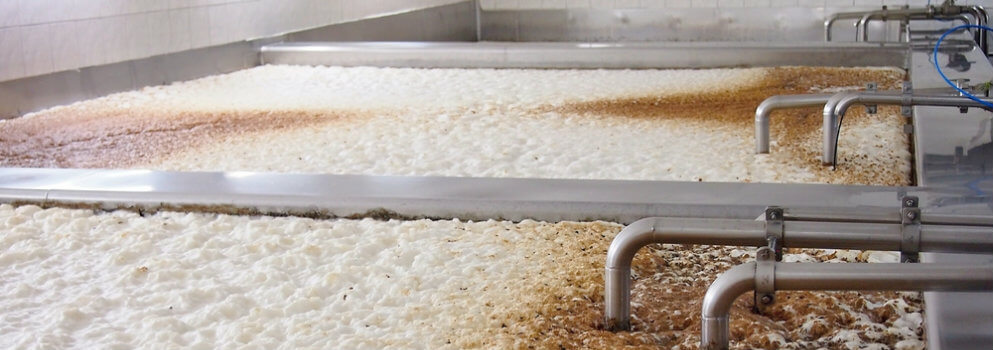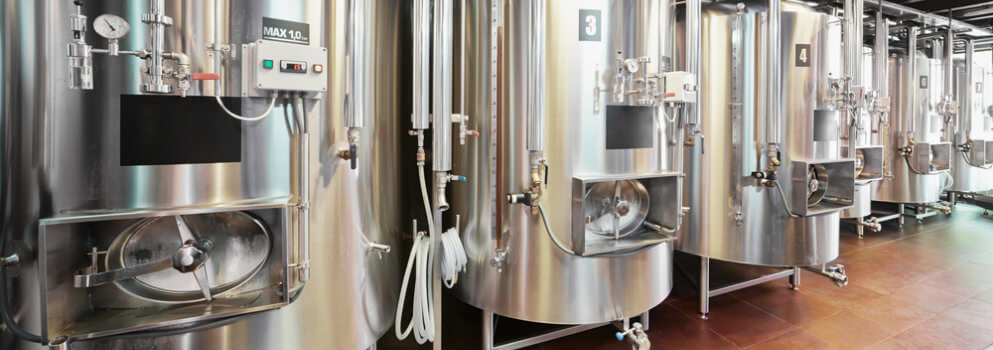
HOW TO CONTROL FERMENTATION TEMPERATURE Ι BEER TEMPERATURE CONTROL TIPS

During the brewing process for alcoholic beverages, an often-ignored by-product of the fermentation stage is heat. It is essential to note that the heat generated by normal beer fermentation activity can raise the process temperature by 10 to 15 °F.
Ideally, the brewing process should be closely regulated within a narrow temperature margin to achieve optimal results. Failing to take adequate steps to properly regulate the thermal aspect of beer production is a costly mistake many new brewers make which can result in unsatisfactory products.
What Temperature is Ideal for Brewing Beer
The ideal beer fermentation temperature depends on the type of beer the brewer is trying to produce. For example, some lagers will require a lower temperature to properly ferment compared to ale. Broadly speaking, satisfactory beer brewing temperature is between the range of 40 to 70 °F.
Lager Fermentation Temp
Beer fermentation temperatures ranging from 45 to 55 °F are adequate to achieve the brewing yeast temperature for a high-quality lager.
Ale Fermentation Temp
The ideal brewing fermentation temperature for ale is from 68 to 72 °F.
IPA Fermentation Temp
Temperatures in the mid-60s °F range can satisfactorily ferment an IPA.
Stout Fermentation Temperature
The average thermal conditions for brewing high-quality stout varies between 64 to 67 °F.
Pilsner Fermentation Temperature
Fermentation temperature charts categorize pilsners as best fermented at 50 to 55 °F.
Bock Fermentation Temperature
To ferment great bock, the temperature should be regulated between 50 – 52 °F. This only slightly differs from the optimal temperature needed to create a great pilsner.
How Do Breweries Control Fermentation Temperature?
Every brewing enthusiast knows that the key to making a great beer relies heavily on paying attention to the details. Apart from selecting an ideal yeast strain, choosing and maintaining an optimal brewing temperature is vital for achieving the desired beer quality.
While beer fermentation temperature control for a homemade setup can be easily achieved with simple cooling fans and tubs, fermenting beer on a commercial scale requires specialized temperature regulation equipment. A brewery chiller unit is ideal for large-scale production.
Most brewery chillers utilize a solution of glycol in water as a coolant (though other refrigerants are available). These chiller units offer the following benefits:
- Glycol helps prevent circulation lines from freezing and clogging up the chiller unit at low temperatures
- Glycol has lubrication properties which can be used to keep the chiller pump running smoothly
- Glycol holds heat better which helps to efficiently cool your brewing beer

How Does a Brewery Chiller Function?
A beer chiller unit is composed of a refrigeration unit, interconnected tubing, and an automatic thermoregulator. The cooling fluid is chilled in a refrigeration tank before being pumped through heat exchanger tubing that surrounds the fermentation vessel.
The heat from the brewing vessel is transferred to the circulating chiller fluid which is subsequently pumped back to the refrigeration component for re-cooling. The overall effect of this heat exchange cycle is a reduction in the fermentation temperature within the brewery vessel.
How Does a Brewery Chiller Regulate the Fermentation Temperature?
Although utilizing chilled glycol as a coolant is quite advantageous, if left unregulated, it can excessively cool the brewing process. A sub-optimal temperature can shut down the fermentation process completely or cause incomplete fermentation to occur.
To avoid brewing beer with poor quality, it’s essential to keep the temperature within the fermentation vessel constant. This can be achieved with an automatic temperature controller.
A temperature-controlled solenoid valve is connected to the tubing leading to the heat exchanger. Additionally, a temperature probe is installed in the wine fermentation vessel through a thermal well which automatically detects thermal changes within the brew. The valve mechanism will automatically open or shut off in response to the temperature within the fermentation vat, therefore restoring it to a pre-determined value.
You can also pair your unit with our predictive chiller maintenance app called the Cold Shot Guardian™. This app uses your local Wi-Fi to provide up to the minute conditions and notifications about your chiller conditions.
Using A Brewery Chiller Unit in The Cold
During frigid weather conditions, there may be a low ambient temperature which is not suitable for brewing certain types of beer. For brewing beer in cold temperatures, brewery process chillers can contain modifications that circulate heated coolant through the chiller tubing to warm up the fermenting beer.
Trust Cold Shot with Your Brewery Process Needs!
For over three decades, Cold Shot Chillers has manufactured high-reliability closed-loop industrial chillers for a host of production processes. We offer a wide selection of process chillers suited for medium to large scale brewery applications.
